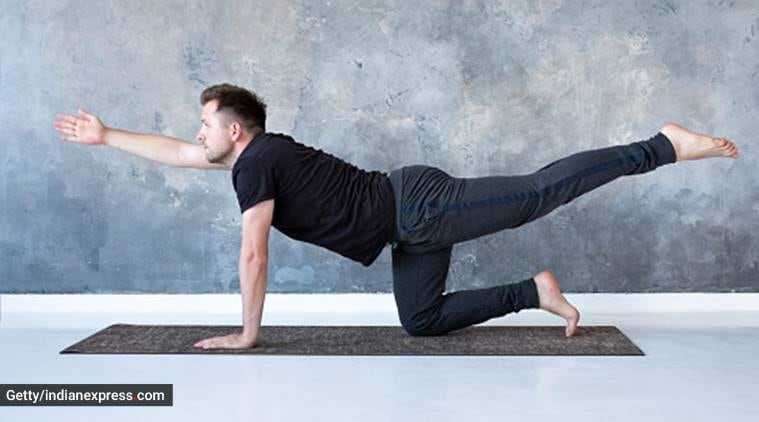Experts have time and again recommended exercising daily during the lockdown as it helps release stress, while keeping one physically and mentally fit.

In the wake of people grappling with mental health issues amid lockdown, a new study has found that movement-based yoga is likely to imporve mental health during COVID-19 crisis.
Published in the British Journal of Sports Medicine, the study was done by researchers from the University of South Australia in partnership with the Federal University of Santa Maria, UNSW Sydney, Kings College London and Western Sydney University.
What is movement-based yoga? Researchers defined it as any form of yoga where people are physically active at least 50 per cent of the time, including yoga asanas that emphasise on holding poses and flows through a sequence of poses.
The study argued that movement-based yoga improved mental health of people living with a range of mental disorders, including anxiety, post-traumatic stress, and major depression, with benefits being incremental with the amount of yoga they practised.
Read| Lockdown fitness: Everybody has 20 minutes to spare, says yoga guru Ira Trivedi
Experts have time and again recommended exercising daily during the lockdown as it helps release stress, while keeping one physically and mentally fit.
“As self-isolation escalates and people find themselves working from home and unable to physically catch up with their friends and family, we’re likely to see more people feel lonely and disconnected,” Jacinta Brinsley, lead researcher, from University of South Ausralia said in a statement.
“Exercise has always been a great strategy for people struggling with these feelings as it boosts both mood and health. But as gyms and exercise classes of all kinds are now closed – even jogging with a friend is strongly discouraged – people are looking for alternatives, and this is where yoga can help,” the researcher added.
Read| Anxious about stepping out as lockdown eases? Here’s how to cope with it
For the study, participants across six countries — US, India, China, Japan, Germany and Sweden — were analysed. They had formal diagnosis of a mental disorder.
“Our results have significant implications and demonstrate that you don’t necessarily need to go for a jog to benefit from movement,” added associate professor Simon Rosenbaum.
(With inputs from ANI)
? The Indian Express is now on Telegram. Click here to join our channel (@indianexpress) and stay updated with the latest headlines
For all the latest Lifestyle News, download Indian Express App.
Source: Read Full Article



